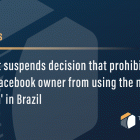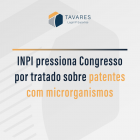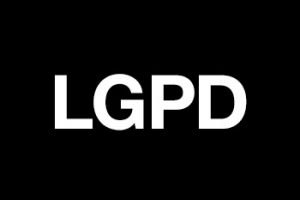The Future of IP
It has become emblematic, in the first decades of the XXI century and with the gradual growth of the demand for services in Intellectual Property before the national IP offices, the initiative from many governments and international institutions to find means for the reduction of backlogs and the time spent by the applicant in obtaining a Letter Patent or a Certificate of Registration.
The first step in this painful process is to first recognize, in a national level, that a country that aims to be recognized as a strategic market cannot take a decade or so to grant a document to an applicant that will give him exclusive right over an IP asset; mostly because the expectation of rights (for the Patent, at least) usually is not enough to convince investors or other economical agents that may be interested in the asset. For the trademark, it’s even worse: only a Certificate is really useful in the negotiation of a license.
The second step, logically, is to study means to expedite the proceedings, without incurring in damages to the applicants. It’s true that a massive backlog is damaging enough, economically, but the improperly examination of a Patent or a Trademark can do even less for the assurance of a market.
Thus, in the many study groups that the national IP offices (and the Brazilian PTO, among them) established to find solutions for the backlogs and slow proceedings for each of their offices, they considered bilateral international agreements.
That’s the point, fortunately, that Brazil finds itself at this moment. In the last year our officials have been profusely busy negotiating PPHs (Patent Prosecution Highways) with other markets like U.S., Japan, Latin America (Argentina, Chile, Colombia, Costa Rica, Ecuador, Paraguay, Peru and Uruguay) and, soon E. U., that will allow the examinations of a Patent Application that already took place in certain IP offices to be validated in our own country with little effort – a logical unfolding of the absolute aspect of novelty as a Patent requirement.
For too much time we have been hostages of the illusion of the “sovereignty” in the examination proceeding. This element of independency has done little to correct possible mistakes by other IP offices around the world, with the serious setback of creating a backlog of almost a decade – in some cases – for the examination of a Patent.
Thus, as the PPHs start being enforced at its full strength, hopefully the backlogs will eventually clear off. The main force of the Brazilian PTO’s workers will be able to focus their capabilities in Patents first filed here in Brazil, on behalf of Brazilian inventors and companies and/or international companies that chose Brazil as a primary market for investment.
That would be a very refreshed vision of the “sovereignty” for which we all have been striving.
For more information regarding the PPHs already signed by Brazil, please access:
http://www.inpi.gov.br/menu-servicos/patente/projeto-piloto-pph
The Brazilian PTO (BPTO) issues Rule #193/2017 on expedited analysis of patent applications filed under the PCT
Recognizing a huge work backlog in the examination of Patent Applications (and expecting an increase of Patent Applications this year), the Brazilian Trademark and Patent Office (BPTO) issued on June 7th, 2017 the Official Resolution No. 193, to help solving the work backlog issue.
This procedure aims to expedite the examination of applications by increasing the examiners’ productivity.
This Resolution is directly related to PCT, and it defines that after June 13th, 2017 (i.e., last Tuesday) the search report for the applications coming from offices that work as International Searching and International Preliminary Examining Authorities under the PCT (ISA and IPEA) will be elaborated through the incorporation of the search performed by the respective office (directly related to the claimed priority.
Also, the documents that are the result of search from other offices (ISR) may be, from now on, directly incorporated to the search report.
Exceptions to this new development are the Patent Applications that already had the technical examination initiated by the BPTO, or the ones that had a priority for examination conceded by the BPTO or, yet, the ones that were targeted by third-party subsidies.
For more information, please contact patents@tavaresoffice.com.br.
Signed a New Agreement for the Examination of Pharmaceutical Patent Applications in Brazil
Yesterday (04/12/2017), in a formal ceremony held in Palácio do Planalto, in the capital Brasília, it was signed the much anticipated agreement between the Brazilian Patent and Trademark Office (BPTO) and the National Health Surveillance Agency (ANVISA) regarding the examination of pharmaceutical patent applications.
In addition to expediting the processing and examination of patents in the pharmaceutical field, this will put an end to many lawsuits that exists over this issue. This will convert in benefits to Brazil, since this new found stability can attract investors to the field. Also, a final decision over certain patent applications can encourage companies to increase the production of certain products, generating more offers of pharmaceutical products in the Brazilian market.
The agreement signed yesterday was published also yesterday as a Joint Ordinance No. 1, with full effect on both entities proceedings. The main aspects of such agreement is summarized below.
As currently required by Article 229-C, ANVISA will continue to issue prior consent over patent application for pharmaceutical product or process (article 1 of the Joint Ordinance). However, article 4 of the Joint Ordinance prescribes that ANVISA will limit its analysis to the risk of the product or process to the public health. The risk is characterized by prohibited substances in Brazil.
This procedure will be performed soon after the filing of examination request presented to the BPTO (article 2 of the Joint Ordinance).
For those cases that may have great effect or consequences on public policies for health (related, for example, on the access of certain medications), ANVISA will be capable to offer subsidies for BPTO Examination. Therefore, ANVISA cannot interfere in the analysis of patentability requirements.
The BPTO, in turn, will evaluate the patentability requirements. This Joint Ordinance is already in effect and, by force of its article 8, will affect all current patent application still pending, even the ones already examined by ANVISA.
Our office and our attorneys act before the BPTO and the ANVISA. We will be able to enforce the new Join Ordinance on benefit of your clients.
If you are interested in finding more about this Join Ordinance or the measures that can be taken to expedite your client’s patent applications in the pharmaceutical field in Brazil, please contact us at info@tavaresoffice.com.br
A new Patent Prosecution Highway (PPH) was signed!
By the PPH, Brazilians will be able to use the result of the examination of the BPTO over their patent applications in order to speed up the analysis in Japan, and vice versa. In this phase of the project (which starts on the first day of April of this year and will last for 2 years) there will be accepted, at maximum, 200 patent applications for the PPH between the two countries.
For this project, the BPTO will accept only patent applications related to Information Technology – a fast paced field that demands quick analysis. In its turn, Japan will accept patent applications for any field.
The IPC classifications included in the program will be disclosed soon, with the resolution that will be issued by the BPTO and will regulate the PPH project in Brazil.
For more information, please contact our technical team at the following email contact: patents@tavaresoffice.com.br
New Developments in the Examination of Pharmaceutical Patent Applications
The Brazilian Patent and Trademark Office (BPTO) and the National Health Surveillance Agency (ANVISA) have recently advanced in the discussion regarding the examination of pharmaceutical patent applications.
Due the Article 229-C of Brazilian IP Law, whenever a patent application claims a pharmaceutical product or process, consent from the National Sanitary Surveillance Agency (ANVISA) is required prior to the granting of the desired patent by the BPTO.
However, ANVISA’s lack technical capability to analyze patentability requirements of pharmaceutical patent applications, and this conflict over the responsibilities of the two entities in the patent application process have generated a backlog in the BPTO’s work of analysis of patents in this field of technology.
Hence, the new proposal clarifies the responsibility of each entity in the process of analysis of pharmaceutical patent applications: ANVISA will continue to issue prior consent declarations, limiting its analysis to the risk of the product or process to the public health and the BPTO, in turn, will evaluate the patentability requirements.
This proposition was approved by ANVISA on March 14, 2017 and we are waiting for the official publication of this decision, in order for it to take immediate effect.
Therefore, rest assured that we will keep you informed about the specifics of this new development and the evolution of its impact on the processing of pharmaceutical patent applications in our care in Brazil.
Ethics and Intellectual Property
When we study the principle of ethics in Intellectual Property, we have two classic situations to be observed: the first (and best known) is the reproduction or imitation of trademarks and / or the involvement of patents between competing companies (i.e., acts of unfair competition between companies owning intellectual property as their main assets) and the second is the one that involves competing offices that provide assistance services to holders of intellectual property rights, which, sometimes, may claim some ethical breach of the other in dealing with clients.
In this setting, the second aspect has an even broader competitive importance (of ethical consideration in its origin), since it involves from the effective onset of the knowledge and the accomplishment of the acts in relation to the practice of the law or the profession of industrial property agent, including even those who do not have such qualifications (whether due to the absence of legal prohibitions or the existence of judicial decisions that now allow free operation of the so-called “industrial property agents”), that act as authorized representatives before the responsible body INPI (Brazilian Patent and Trademark Office, a.k.a. BPTO).
Returning to the classic situation of market competition, in cases in which a competitor company that, as a transgressor, makes improper use of a trademark identical or similar to the one already registered for identical or similar products or services, the transgressor usually ceases to reproduce or to imitate when notified by the legitimate trademark owner, especially due to the lack of interest in facing a legal proceeding involving reparation for losses and damages and/or restitution for lost profits.
The same is valid when discussing the involvement of a patent, once the violation of rights over an invention or an utility model has been confirmed; or even when it is considered a violation of rights over the “design” – registered before the BPTO as an industrial design – or protected by the set-image of a certain object, also known as “trade-dress”, henceforth achievable by a legal prohibition against unfair competition.
It could be argued, at first, that such adverse situations – that is, of market competition and professional competition (in case concerning the activities of industrial property agents) are not directly correlated. But the truth is that in all these cases the wrongfulness comes from the decisions of the individual – be it the competing professional or the competing entrepreneur and, therefore, are at least correlated in their origin. In this sense, the Brazilian Gama Cerqueira reminded us:
“Free competition thus finds its limits, first, in the rights of others, then in the duties of the individual to the society in which they live, and finally, in the duties of charity. If individuals spontaneously observed the moral rule that should guide economic activity, it is clear that the laws regulating commercial and industrial competition or economic competition would not be necessary. However, this is not the case; it is quite the opposite, with free competition pending towards the abuse of this right, which requires the intervention of the State in its domains, in order to contain it within certain rules imposed by loyalty, good faith, and social interest. The principles justifying the theory of repression of unfair competition dominate all institutes of industrial property, such as the moral reverse of positive law, thus unveiling, in this respect, the unity of this branch of law.” (GAMA CERQUEIRA, João da, Industrial Property Treaty, vol. I, p. XVI, 3 ed., Lumen Juris, 2010; bolded emphasis added)
In a similar path, a diverse number of Brazilian courts remind us that the reprehensible forms of competition, in any sphere, come from violations of moral and ethical principles:
“It is clear from the foregoing that the claim of the appellant to use the domain name Airtonsenna.com.br, on the worldwide web, without the indispensable authorization from the plaintiff/appellee finds an obstacle not only in the law, but also, in the ethical and moral rules that must necessarily guide human and commercial relations.” (Court of Justice of the State of Paraná, 2nd Civil Chamber, Court Judge Sidney Mora, AC 0086382-5, DJ 29.03.2000, bolded emphasis added)
“In spite of the brilliance of such an orientation, I think it does not deserve to prosper, because in the post-positivist phase crossed by national law, the contemporary doctrine admits a rapprochement between law and morality, that is, the legal operator, in their hermeneutical task, should not deviate from ethical and axiological guidelines. That is a fact, and so much so, that among the principiologic pillars of the new Civil Code are not only sociality and operability but, above all, ethics, whose normative efficacy favors good faith in private relations.” (Court of Justice of the State of Espírito Santo, 4th Civil Chamber, Court Judge Catharina Barcellos, AC 030070038010, DJ 28.07.2009; bolded emphasis added)
“Ethics is characteristic of every legal order”, as the late Miguel Reale asserts: “It could be said that attributive bilaterality is characterized by its axiologically binary structure, in such a way that the correlation between ownership and duties, between pretense and rendering, thanks to it, is expressed in an objective manner, overcoming the plan of the empirical relationship between two subjects, as it refers to something essential to the life of the spirit: the possibility and the ethical necessity of obliging the spirit, also in virtue and on account of something transsubjective.” (In: Philosophy of Law, pg. 694). Consequently, there is no action of the subject dissociated from ethics, so that the analysis of a patent application must also take into account the ethics of the applicant. “(TRF2, EDAC 2000.02.01.018537-5, Second Class of the Federal Regional Court of the 2nd Region, by consensus, Court Judge André Fontes, August 26, 2008, bolded emphasis added)
Ethics, in itself, as a branch of philosophy and, more broadly, may be understood as the set of principles, values and moral and conduct norms in a given group. In Intellectual Property, we simultaneously have the recognition of the market ethics (concerning the broad competitive law in its matter), as well as the professional ethics (concerning the competition between the offices that defend the interests of ownership: lato sensu, their attorneys).
Thus, it is imperative to establish, for the enrichment of the discussion, a definition of what would comprise the “professional ethics” to be followed by attorneys and industrial property agents, its importance, and finally, the penalties that could arise from the noncompliance by individuals or even companies that do not observe the correctness of actions in the exercise of professionalism, which should involve the mediator between companies and natural persons (clients) and the governmental body guaranteeing IP rights (such as the BPTO, the PTMO, the USPTO, etc.).
It is a fact that in Brazil, associations such as ABAPI (Brazilian Association of Industrial Property Agents) have absolute importance and legitimacy in establishing the professional ethics of those who work within their scope, and for this reason, they maintain their Code of Professional Ethics for Associates (Bound to their Articles of Association, approved by the Extraordinary General Meeting in August 2013) and which, for example, provides for the prohibition on the professional to offer a service in a specific process in which there is an acting attorney (Article 8), in addition to establishing that the associate should establish a relationship of good faith, transparency, and loyalty with others associates (Article 9). In addition to these preliminaries, ABAPI establishes in its Code of Ethics that the associate, upon assuming the process (or processes) sponsored by another associate, must notify the change of sponsorship to the previous agent (article 10). The negligence of all these duties and others, established in the Code, can result, upon initiation of due disciplinary process, in a warning, suspension or even definitive termination of the member reported.
This is, perhaps, the biggest difference between the consequences of the violation of market ethics and professional ethics, both of which are present in Intellectual Property. While the former deals with legal sanctions, both in the criminal and civil spheres, the latter is limited to administrative sanctions – and even so, only within professional associations.
Much have been said, for this very reason, of the temporary suspension of the effects of Normative Act no. 142/98 of BPTO through an ongoing disputed judicial decision, which then established the Code of Professional Conduct for Industrial Property Agent nationwide, for all those who were legitimized by the INPI to practice the profession. Although this regulation may not serve as a legal reference today, the Code of Professional Ethics for Associates of ABAPI has full effect and reaches, without exception, all those who are members of the association.
Well, then!
Such professional ethical principles, although effectively observed by most industrial property agents bound or not as associates of ABAPI and other entities, are also, in a significant number of cases (mainly in those where certain professionals dissociate themselves from known offices to start new independent offices), completely ignored. Such acts – which generally involve the disclosure of information to a clientele that such professionals have retained (sometimes unduly) – occur without the least observance of the precepts that involve ethics and competitive loyalty, which, ironically, are exactly the principles studied by Intellectual Property.
Therefore, at a time when we see a very large number of swindles multiplying (some, including the name of the BPTO itself) and Brazilians in political positions that refuse to answer for the severity of their own acts, we understand that is imperative to alert all our peers, and the ones who live by and depend on intellectual property, that ethical principles rest not only on their object of study (or even on the principological basis of the laws and rules that make them up), but also in their everyday life, reflecting in the actions of a professional with their peers and their clients.
Competitive loyalty should not be saved only for the Court.
by Márcio Ney Tavares
New Guidelines for the Examination of Computer-implemented Inventions
Brazil and Japan new agreement – A new Patent Prosecution Highway (PPH) is near!
We are pleased to announce that today Brazil and Japan have signed an agreement that creates a work group to study forms of cooperation in patent examinations between the two countries, and it could mean a Patent Prosecution Highway (PPH) in the near future.
This is a new important step, since a PPH Pilot Program between the USPTO and the BRPTO is already in course since January of this year. The Patent Prosecution Highway (PPH) speeds up the examination process for corresponding applications filed in participating intellectual property offices.
Under PPH, participating patent offices agree that when an applicant receives a final ruling from a first patent office that at least one claim is allowed, the applicant may request fast track examination of corresponding claim(s) in a corresponding patent application that is pending in a second patent office. PPH leverages fast-track examination procedures already in place among participating patent offices to allow applicants to reach final disposition of a patent application more quickly and efficiently than standard examination processing.
This measure is a relief and of great benefit to applicants suffering from backlogs from some patent offices worldwide, like the Brazilian PTO. With initiatives like this, we could expect the BRPTO to reach a final decision in months instead of years, in some cases.
If you are interested in further information regarding this agreement or have clients in Japan that would be in a position to benefit themselves from this agreement in the near future, please let us know. We will be glad to assist you. Please contact our team at the following e-mail adress: patents@tavaresoffice.com.br






